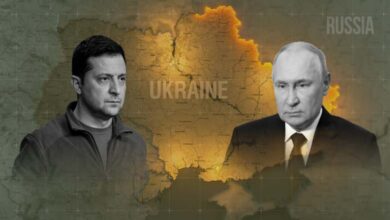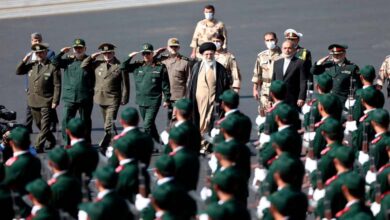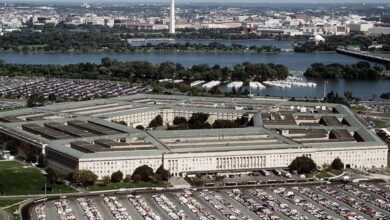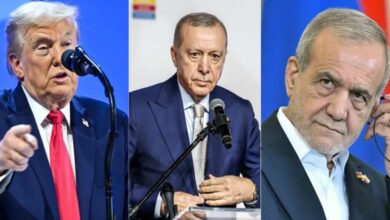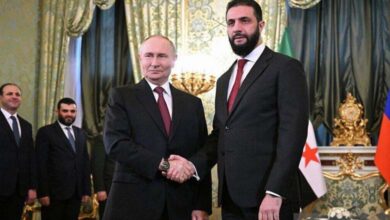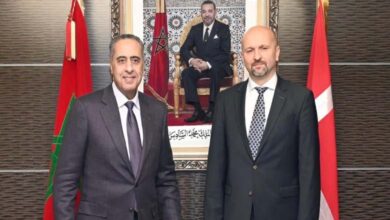Hezbollah courts Trump with a language of interests: from the Great Satan to investment opportunities
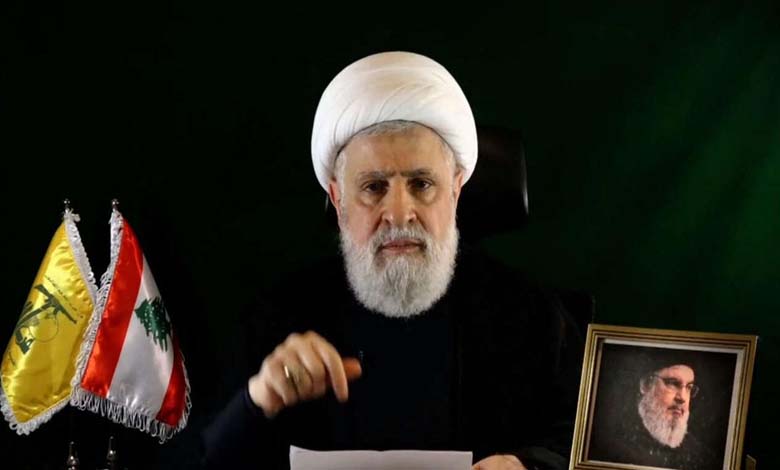
In a notable shift in political discourse, the Deputy Secretary General of Lebanon’s Hezbollah, Sheikh Naim Qassem, delivered an unusually conciliatory message toward the American administration. Speaking on the occasion of Resistance and Liberation Day, Qassem addressed former U.S. President Donald Trump directly, advising him to reconsider Washington’s alignment with Israel and suggesting that distancing from Tel Aviv could unlock promising economic and trade opportunities in the Middle East.
-
Heaviest escalation between Hezbollah and Israel puts Lebanon on the brink of war
-
Violent Clashes Between Hezbollah and Israel Amid Preparations for Total War in Southern Lebanon
This message, issued amid rising tensions between Hezbollah and Israel, reflects a tactical recalibration by the group. Aware of shifting regional and international dynamics—and weakened by a recent Israeli offensive that undermined its military presence and political support—Hezbollah appears to be adopting a more pragmatic tone. The speech appeals to Trump’s commercial mindset and his personal and political friction with Israeli Prime Minister Benjamin Netanyahu.
For decades, Hezbollah’s stance toward the United States has been one of open hostility, branding it the “Great Satan” and Israel’s strategic patron. Yet Qassem stated: “We advise President Trump to seize the opportunity to free himself from Israel’s influence, as this would offer him greater room for investment in the region.” He warned that continued Israeli aggression undermines regional stability and thus harms American interests. “Israel uses this support solely to serve its own agenda,” he said.
-
France presents a proposal for de-escalation between Hezbollah and Israel
-
Washington seeks to contain the war between Hezbollah and Israel by sending an official to Beirut
This shift in tone is deeply connected to the complex political context Hezbollah now faces. The recent conflict caused substantial damage to Lebanon’s southern infrastructure and inflicted significant human and material losses. With the Lebanese state unable to contain Israel’s repeated ceasefire violations—reportedly over 3,300 breaches—Hezbollah appears to be recalibrating its messaging strategy.
Qassem’s timing was strategic. According to Politico, rising tensions between Trump and Netanyahu have come to light, with five current and former U.S. officials revealing that their relationship has recently deteriorated due to diverging views on key Middle East issues. These fractures create an opening for Hezbollah to reposition itself not as a perpetual adversary, but as a political actor willing to engage based on mutual interests.
-
Religious Chant Leader Accused of Spying for Israel and Bringing Down Hezbollah Officials
-
“Sleeping Cells” in Europe and America: Hezbollah’s “Specter” of Retaliation against Israel
While Qassem’s speech retained elements of Hezbollah’s ideological rhetoric—mentioning Yemen, Gaza, and “Arab dignity”—his overall message to the United States was less confrontational and more grounded in interest-based reasoning.
Recognizing that open confrontation with the U.S. may no longer be sustainable, Hezbollah appears to be testing a different approach. By appealing to Trump’s background as a businessman, the party may be attempting to initiate indirect dialogue framed around investment and regional stability—a language Trump is known to appreciate.
-
One of them was a missile system commander… Israel kills Hezbollah leaders
-
Gaza Setback and the Success of Israeli Spies: An Analysis of Hezbollah Infiltration
Reaffirming the group’s coordination with the Lebanese state, Qassem stated that “the state bears the responsibility” for responding to Israeli violations, and urged bolder positions at the UN and in international forums. At the same time, he warned that the resistance remains prepared for other options, hinting at a possible military response if escalation continues.
In essence, Qassem’s speech represents a strategic repositioning effort at a sensitive moment for Hezbollah both regionally and domestically. It blends political realism with symbolic warnings, and flirts with outreach toward Trump, not through defiance, but through the logic of shared interests.



